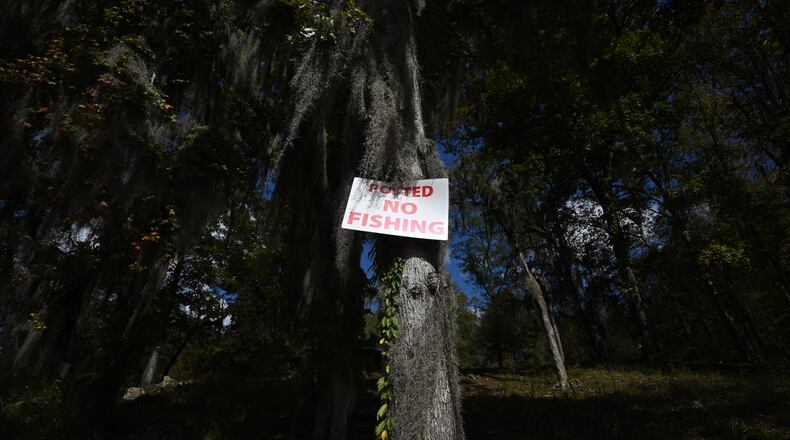The Georgia Legislature voted to strip references to public ownership of natural resources from a law passed last year affirming the public’s right to fish, hunt and pass on the state’s navigable streams and rivers.
Tensions over who has the right to fish certain coveted spots have heightened in recent years. In 2020, a dispute at Yellow Jacket Shoals on the Flint River — famous for its fiesty shoal bass — escalated into gunfire, though no one was harmed.
The new law was rushed through in the waning hours of the 2023 session after the state settled a lawsuit by granting a property owner exclusive fishing rights over a portion of the shoals. The law was welcomed by anglers, paddlers and conservationists, but agribusiness and some private property owners objected to language in the bill referencing the ‘public trust doctrine’ — a common-law principle that natural resources belong to the public and are kept in trust by the state.
Kemp is expected to sign the bill that passed this week, amending the law by removing those references. The bill passed 34 to 18.
Supporters of the amendment said that they feared codifying the public trust doctrine could open opportunities for environmental activists to file “frivolous” lawsuits against farmers for activities they could claim pollute public waterways. No such lawsuits have been filed in Georgia since the law went into effect last year, but the public trust doctrine has been cited in lawsuits in other states seeking to force the federal government and other states to take action on climate change.
Will Bentley, president of the Georgia Agribusiness Council, welcomed the bill’s passage. He said the proposal addresses concerns “while maintaining the intent of Governor Kemp to protect fishing and hunting rights on navigable rivers.”
Conservation groups said removing the public trust language was likely to have little practical effect, but they warned against language elsewhere in the bill they said could be used to narrow the list of protected activities
The state Constitution says that the “taking of fish and wildlife shall be preserved for the people and shall be managed by law and regulation for the public good.” But public access is only protected on “navigable” rivers, and there is no universally-recognized definition for what constitutes a navigable river in the state. The issue is further complicated by historical land grants that give some property owners title to the stream bed of navigable waters.
The fishing rights law was intended to protect the public’s right to access navigable waters even in places where the stream bed is privately-owned. But the amendments do not address whether Georgians have the right to touch the stream bed, and the list of protected activities is limited to hunting, fishing and passage.
April Lipscomb, an attorney with the Southern Environmental Law Center, said it’s unclear how activities like wade fishing, swimming or collecting water samples for research would be treated under the law.
“Leaving those calls up to local law enforcement could lead to lots of different interpretations,” she wrote in a text message.
A note of disclosure
This coverage is supported by a partnership with Green South Foundation and Journalism Funding Partners. You can learn more and support our climate reporting by donating at ajc.com/donate/climate/
About the Author
Keep Reading
The Latest
Featured



